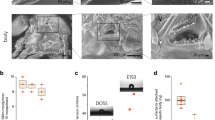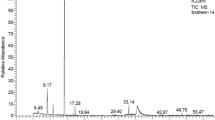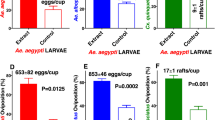Abstract
A NUMBER of experiments on the destruction of mosquito larvæ by the well-known system of “surface oiling”, carried out at Hayling Island during the year 1921, supplied further evidence of the fact that this method is not one of universal application. The production of an unbroken film of a sufficiently lasting nature is sometimes an impossible task, notably in cases where the water surface is broken up by growths of reeds, etc., or is too freely exposed to the wind. In cases of this kind it is necessary to discard the oil film in favour of a “larvicide”, that is to say, a substance which, by mixing with the infested water, will destroy the larvæ.
This is a preview of subscription content, access via your institution
Access options
Subscribe to this journal
Receive 51 print issues and online access
$199.00 per year
only $3.90 per issue
Buy this article
- Purchase on Springer Link
- Instant access to full article PDF
Prices may be subject to local taxes which are calculated during checkout
Similar content being viewed by others
Author information
Authors and Affiliations
Rights and permissions
About this article
Cite this article
MARSHALL, J. The Destruction of Mosquito Larvæ in Salt or Brackish Water. Nature 109, 746–747 (1922). https://doi.org/10.1038/109746b0
Issue Date:
DOI: https://doi.org/10.1038/109746b0
Comments
By submitting a comment you agree to abide by our Terms and Community Guidelines. If you find something abusive or that does not comply with our terms or guidelines please flag it as inappropriate.



